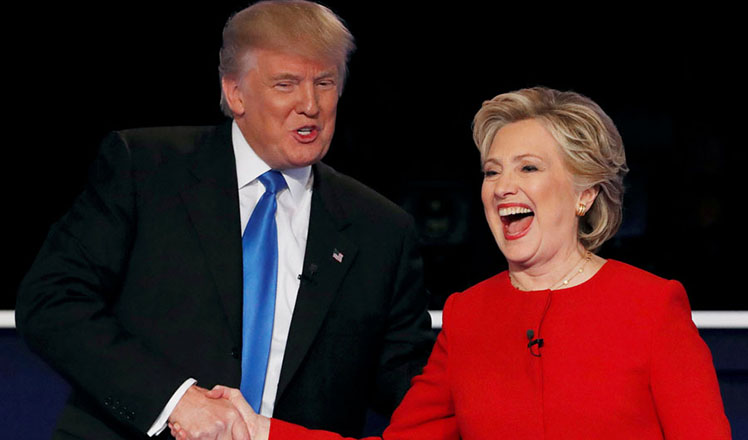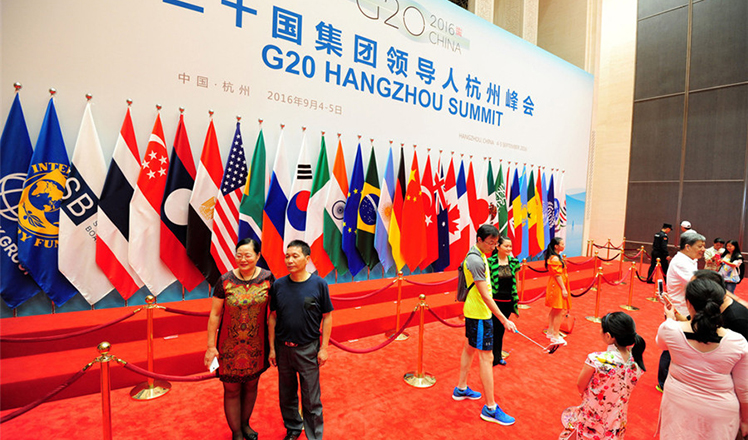Canada looks to expand trade ties with China prior to Li's visit
Updated: 2016-09-21 11:47
By Paul Welitzkin in New York(China Daily USA)
|
||||||||
Before beginning his trip to China in August, Canadian Prime Minister Justin Trudeau said he wanted to develop deeper economic ties with Canada's second-largest trading partner and the world's second-largest economy.
When he returned, Trudeau brought with him 56 deals worth more than C$1.2 billion (US$910.1 million) that were announced or signed. And when Trudeau meets with Chinese Premier Li Keqiang on his official visit to Canada, the two countries are expected to seek a closer relationship in several areas, especially trade.
Trudeau's father Pierre Trudeau was prime minister when Canada formally established relations with Beijing in 1970. Now China is Canada's second-largest single-country trading partner after the US.
Observers in Canada see expanding trade in areas ranging from food and high-tech to Canadian corporate "know-how" in various fields and upscale products that will appeal to China's growing middle class.
Iris Jin, senior program manager at the Asia Pacific Foundation (APF) in Canada, said Canada needs to builds its "brand" in China.
"Canada is strong in many fields, including good quality food and high technology. But we need to promote that brand in China," she wrote.
Canadian exports to China are mainly resource based, agricultural products, oil, wood and food, said Jin. "While trying to increase our exports of these products, Canada should also be expanding exports in manufacturing and services where we have strong expertise and competitiveness," she said.
Charles Burton, a former Canadian diplomat in China who is now a professor at Brock University in St. Catharines, Ontario, said Canada will want to emphasize upscale products and services in China.
"The government of Canada hopes that higher-end agricultural products including fruit and seafood as well as higher-end manufactured products will be increasing their market share in China as China's middle class continues to grow. China's growing middle class is the current target consumer for Canadian export expansion to China," Burton wrote.
Gordon Houlden, director of the China Institute at the University of Alberta, said that Canada's announcement of its application to join the AIIB (Asian Infrastructure Investment Bank) during Trudeau's trip "could open the door to the provision of Canadian corporate know-how on AIIB projects in the future".
"The opening of a Canadian portal on Alibaba's e-commerce hub may also smooth entry of some Canadian products into the Chinese market," he added.
Jin said that Trudeau's visit to China led to some key accomplishments, including the 56 deals, the application to the AIIB, China postponing the enforcement of restrictive new standards on canola imports and the Canada-Hong Kong Foreign Investment Promotion and Protection Agreement (FIPA) coming into force.
She said that because of the trip, Canada and China have agreed to engage in more regular high-level dialogue. "Closer political ties always bring more opportunities in economic relations too," she said.
According to the APF, Canada exported C$19.7 billion worth of goods to China in 2015 while Chinese imports into Canada totaled C$65.6 billion, resulting in a trade deficit of about C$45.9 billion.
"To close the gap, Canada needs to come up with a holistic approach to China, and a strategy that makes it clear what kind of relationship Canada wants to have with China, what our priorities are, what our position is regarding a Free Trade Agreement with China," said Jin.
paulwelitzkin@chinadailyusa.com
(China Daily USA 09/21/2016 page1)

 Clinton, Trump go head to head in high stakes presidential debate
Clinton, Trump go head to head in high stakes presidential debate
 Miniature replica of Daming Palace shows craftsmanship
Miniature replica of Daming Palace shows craftsmanship
 Elderly man creates map of China with colorful rice
Elderly man creates map of China with colorful rice
 Students 'die' to get closer to each other in Hangzhou
Students 'die' to get closer to each other in Hangzhou
 Classic autos debut at Beijing Design Week
Classic autos debut at Beijing Design Week
 World in photos: Sept 19 - 25
World in photos: Sept 19 - 25
 Milan Fashion Week: Dolce & Gabbana Spring/Summer 2017
Milan Fashion Week: Dolce & Gabbana Spring/Summer 2017
 Hangzhou opens G20 summit arena to general public
Hangzhou opens G20 summit arena to general public
Most Viewed
Editor's Picks

|

|

|

|

|

|
Today's Top News
Trump outlines anti-terror plan, proposing extreme vetting for immigrants
Phelps puts spotlight on cupping
US launches airstrikes against IS targets in Libya's Sirte
Ministry slams US-Korean THAAD deployment
Two police officers shot at protest in Dallas
Abe's blame game reveals his policies failing to get results
Ending wildlife trafficking must be policy priority in Asia
Effects of supply-side reform take time to be seen
US Weekly

|

|









